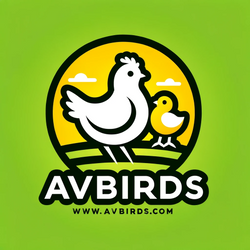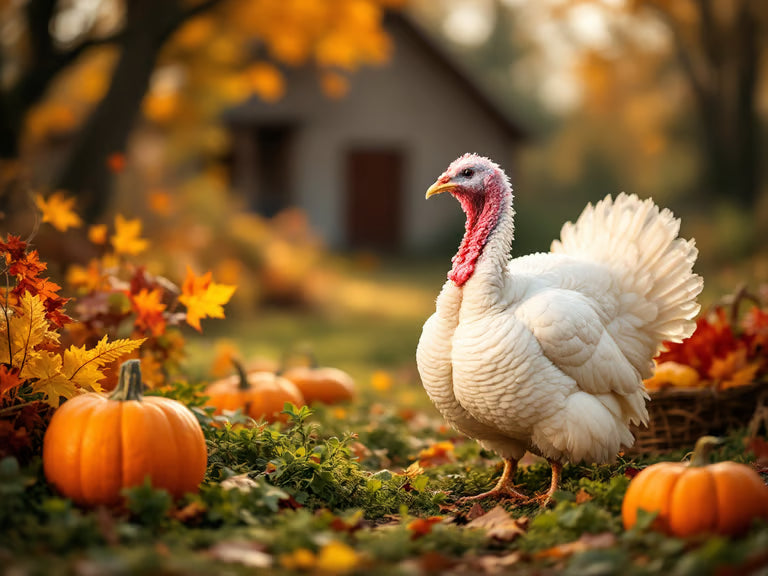Thinking about buying or raising a live turkey for Thanksgiving in California? You’re in the right place. These live turkey health tips for Thanksgiving will help you pick the best bird, set up safe housing, feed properly, spot illness early, and follow local rules. Let’s make sure your Thanksgiving turkey thrives from day one until it’s ready for the table.
Choose Your Turkey
Pick The Right Breed
Different breeds have distinct temperaments and growth patterns. If you want a calm bird that handles backyard life well, check out our live turkey breeds for Thanksgiving. Heritage breeds often do better in free-range setups, while broad-breasted varieties bulk up quickly for the holiday.
Source Locally
Buying close to home reduces transport stress and helps you inspect your bird in person. Search for farms and sellers near you with buying live turkeys near me or explore trusted producers on live turkey farm in California. You can also see weekly listings on live turkey availability in California.
If you’re ordering poults for next season, avbirds.com offers quality Turkey Poults and Hatching Eggs suited for backyard flocks.
Set Up Safe Housing
Space And Shelter
Provide at least 10 square feet per turkey in a dry, well-ventilated coop or pen. Your setup should include roosting areas off the ground, solid flooring to limit parasites, and wind-proof walls for colder nights.
Maintain Clean Conditions
Remove droppings daily and replace bedding at least once a week. Dirty pens harbor bacteria like Campylobacter and Salmonella, so keeping floors clean prevents disease spread (CDC).
Feed And Hydrate Properly
Balanced Feed Plan
Start with a high-protein game bird starter until week 8, then switch to grower feed until your turkey reaches harvest weight. For detailed rations and supplement tips, see our live turkey feeding guide.
Fresh Water Access
Provide clean water at all times. In California’s heat, check waterers twice daily and add electrolytes during heat waves to prevent dehydration.
Monitor Turkey Health
Watch Behavior Daily
Healthy turkeys are curious, active and alert. Notice any decrease in appetite, drooping wings or lethargy. Our live turkey behavior characteristics resource can help you decode normal versus concerning actions.
Spot Signs Of Illness
Look for runny eyes or noses, coughing, diarrhea or uneven droppings. If you catch symptoms early, you can often treat minor issues with electrolytes, probiotics or a quick vet consult before they escalate.
Practice Biosecurity Basics
Quarantine New Birds
Keep any new arrivals separate for at least two weeks. That way you reduce the chance of introducing respiratory infections or parasites to your flock.
Clean Equipment Regularly
Disinfect feeders, waterers and tools between flocks. A simple bleach solution (1 tablespoon bleach per gallon of water) works wonders to kill lingering germs.
Know Permits And Rules
Permit Requirements
California may require a permit for live turkeys in some counties. Check details on live turkey permits for Thanksgiving so you stay compliant and avoid fines.
Local Regulations
Beyond permits, local ordinances can dictate flock size, housing setbacks and disposal methods. Learn more at live turkey regulations in California.
Prepare For Harvest Day
Humane Slaughter Process
When you’re ready, follow best practices for a stress-free, humane process. Our live turkey slaughtering process guide walks you through each step.
Cooking And Roasting
After slaughter, handle your bird safely to avoid cross-contamination. For tips on brining, seasoning and roasting, head to live turkey roasting techniques. You can also compare popular heritage lines on avbirds.com’s Thanksgiving Turkeys page.
Key Takeaways
- Choose a breed that fits your space, climate and harvest goals
- Provide clean, spacious housing with proper ventilation
- Feed a balanced diet, and keep fresh water flowing
- Check behavior and health signs every day, and isolate new birds
- Follow California permit and regulation requirements
- Plan humane slaughter and safe cooking steps for Thanksgiving
Got your own pro tip for keeping a turkey happy and healthy? Share it in the comments below so fellow California turkey raisers can benefit!

